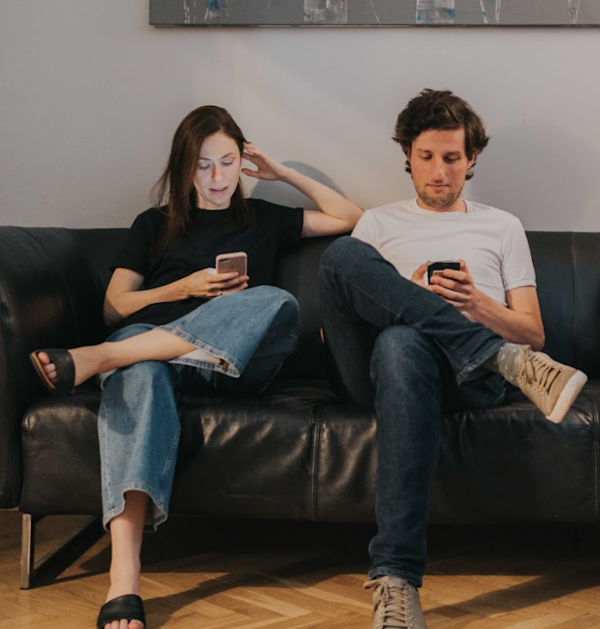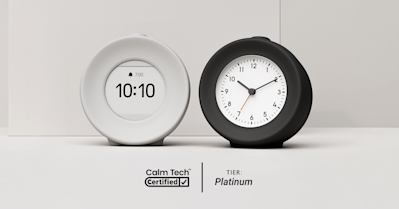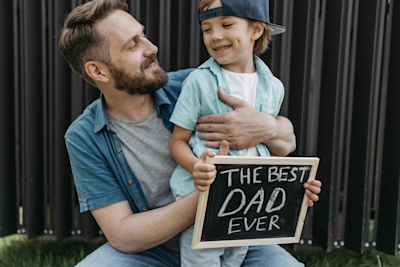
Complexities to Relationships in the Digital Age.
Complexities to Relationships in the Digital Age & The Powershift Phones Have on Face-to-Face (F2F) Interactions
Written by: Jadelin Pikake Felipe Design by: Rachel Wu Edited by: Kathy Dethlefsen
Source: Jadelin Pikake Felipe Design: Rachel Wu
Relationships are complex; whether you choose to live hyper-connected to your digital devices or choose a more basic, unplugged, analog type of life.
At the time I did my research in 2016, the students I interviewed seemed unsure of whether or not the act of intentionally unplugging from their phones made a significant difference on the quality of their relationships. There are many variables to take into consideration. Students who put into practice acts of intentionally unplugging from their phones noticed the positive benefits of unplugging for themselves and they began to perceive and cultivate an appreciation for the relationships in their life. By intentionally unplugging from their phones, not only were they able to better notice the behaviors of others but they were able to better show up and participate. In both my personal and professional life working with college students, I’ve seen how modeling attentive and positive verbal and non-verbal behavior cues others to do the same.
My current day thoughts...
Despite social distancing, I’ve never felt so hyper connected to my digital devices than I do now. It’s our devices--our phones, our tablets, computers, televisions, video games, and the list goes on--that connect us to our personal and professional lives.
This year I noticed a change in my circle of friends and family; an increased ability to communicate their need for personal space and in setting boundaries. Interestingly, this always has come in the form of a text or video text message. Not a phone call, voicemail, email, or in person. I wonder if others have experienced this as well? Did the turbulent and challenging year of 2020 force us to be more mindful of our emotions and relationships with others? Consequently, are we requiring ourselves to set boundaries and communicate our need for personal space? I cannot help but wonder why these “asks” for personal space have come via text and video text message only and not during live Zoom video calls or telephone calls. Factually, we talk less on our phones now that we have text messaging and video call applications like FaceTime or Marco Polo. I wonder if there is an increased sense of safety and comfort, less vulnerability, and more openness with these text and video message communication modes in comparison to regular phone calls, in-person or virtual face to face meetings/calls.
In conclusion, how does intentionally unplugging from cellphones shape our interpersonal relationships, shared experiences, and communal spaces? We’re all figuring this out as we go. Our constant connectivity to our devices complicates our efforts to use our phones and digital devices less. It will take mindfulness, accepting vulnerability, openness to change that will allow us to welcome the discomfort that comes with this, and dialogue with others. Starting with our own friends, families and communities, practice and persistence putting into digital wellness will allow us to reap the benefits of what intentionally unplugging and intentionally using our phones can add to our lives.
Questions to consider:
Is it easier and more productive having dialogue about personal boundaries and space over text and video message? If so, why?
Are there certain categories of discussion topics you consciously or subconsciously communicate using different modes of communication? If so, what motivates you to do so?
Actions to experiment with:
Take a few minutes to take an inventory of the topics you discuss using different communication modes. Are there any patterns you notice and any changes in behavior you might consider taking?
Source: Jadelin Pikake Felipe
The author: Jadelin has over thirteen years of professional experience in university and college student development, EdTech, and research. She holds a BA in Ethnic Studies from the University of Hawai’i at Manoa and a MA in Organization and Leadership from the University of San Francisco. Currently, she’s a part of the Golden Gate University Development & Alumni Relations team and is building a Linkedin-like online community for networking and mentorship for adult-learner students, alumni, faculty, and staff; and is looking for ways to incorporate digital wellness. Jadelin currently lives in Northern California and in her unplugged time she enjoys dancing hip hop, going to the beach, and finding delicious sushi and Korean food.
Related stories

Mudita’s Mindful Alarm Clocks Are Calm Tech Certified™
Wake up refreshed with Bell 2 & Harmony 2. Both are Platinum Tier Calm Tech Certified™, helping you start and end each day with less stress and more presence.

Why Boredom Is Good for Your Creativity & Mental Health
Boredom isn’t the enemy. It’s a path to creativity, meaning, and better mental health. Learn why unplugging from your phone can unlock a more fulfilling life.

The Best Analog Alarm Clock Gift for Dads Who Need More Sleep
Give your dad the gift of rest with Mudita Bell , a minimalist analog alarm clock that helps him wake up calmly, without screens, no stress, just peace.
If you'd like to receive the best stories from our blog, keep up to date with our progress and get notified about our product releases and special discounts.